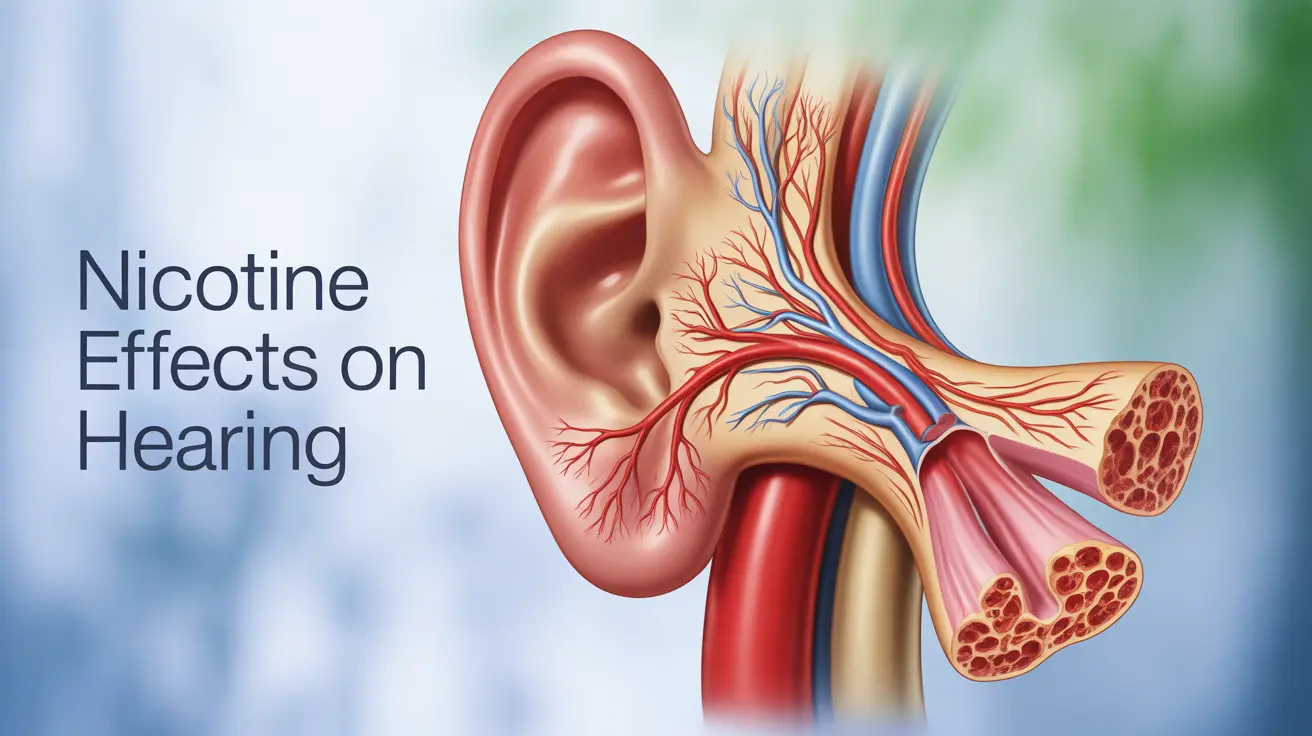Living with tinnitus can be challenging, and for those who smoke or use nicotine products, understanding how these habits might affect their condition is crucial. The relationship between nicotine consumption and tinnitus has become an increasingly important topic as more people seek to understand what might be triggering or worsening their symptoms.
In this comprehensive guide, we'll explore the connection between nicotine use and tinnitus, examining both direct and indirect effects, while providing valuable insights for those concerned about their hearing health.
Understanding Tinnitus and Its Basic Symptoms
Tinnitus manifests as phantom sounds in the ears, typically described as ringing, buzzing, humming, or whistling noises. These sounds can vary in intensity and may be constant or intermittent, affecting one or both ears. While tinnitus itself isn't a disease, it's often a symptom of an underlying condition.
Common symptoms include:
- Persistent ringing or buzzing sounds
- Difficulty concentrating
- Sleep disturbances
- Increased stress and anxiety
- Challenges with hearing normal sounds
The Impact of Nicotine on Hearing Health
Nicotine affects the body in multiple ways that could potentially influence tinnitus symptoms. As a vasoconstrictor, nicotine narrows blood vessels, potentially reducing blood flow to the inner ear. This decreased circulation may impact the delicate hair cells responsible for converting sound waves into electrical signals for the brain.
Blood Flow and Inner Ear Function
The inner ear requires consistent blood flow to function properly. When nicotine constricts blood vessels, it can:
- Reduce oxygen supply to inner ear cells
- Affect the normal function of auditory pathways
- Potentially damage sensitive hearing mechanisms
Chemical Effects of Smoking on Hearing
Beyond nicotine itself, cigarette smoke contains numerous toxic compounds that may harm hearing health. These chemicals can potentially damage both the auditory system and the neural pathways responsible for processing sound.
Quitting Nicotine and Tinnitus Management
For those experiencing tinnitus, stopping nicotine use may offer several benefits. While immediate improvement isn't guaranteed, many people report positive changes after quitting smoking or other forms of nicotine consumption.
Benefits of Cessation
Quitting nicotine use can lead to:
- Improved blood circulation to the inner ear
- Better overall cardiovascular health
- Reduced exposure to ototoxic chemicals
- Potential improvement in tinnitus symptoms
Prevention and Management Strategies
Managing tinnitus while dealing with nicotine use requires a comprehensive approach. Consider these strategies:
- Gradual reduction of nicotine intake
- Working with healthcare providers for smoking cessation
- Implementing stress management techniques
- Maintaining good overall hearing health practices
Frequently Asked Questions
Can nicotine from smoking or vaping cause tinnitus or make it worse?
Yes, nicotine can potentially cause or worsen tinnitus symptoms. As a vasoconstrictor, it reduces blood flow to the inner ear, which may affect hearing function and potentially trigger or intensify tinnitus symptoms.
How does quitting smoking affect tinnitus symptoms?
Quitting smoking can lead to improved blood circulation and reduced exposure to harmful chemicals, potentially helping to alleviate tinnitus symptoms. However, results vary among individuals, and improvements may take time to become noticeable.
What are the potential ototoxic effects of chemicals in cigarette smoke on hearing health?
Cigarette smoke contains numerous toxic compounds that can damage the auditory system, including carbon monoxide and heavy metals. These substances may harm the delicate hair cells in the inner ear and affect neural pathways involved in sound processing.
What are the common symptoms of tinnitus, and how can they be managed?
Common tinnitus symptoms include persistent ringing, buzzing, or whistling sounds in the ears. Management strategies include stress reduction, sound therapy, avoiding triggers, and working with healthcare professionals to develop a personalized treatment plan.
Is there a connection between nicotine use and the risk of developing tinnitus?
Research suggests a potential link between nicotine use and increased risk of developing tinnitus. The relationship appears to be related to nicotine's effects on blood flow, cardiovascular health, and potential damage to auditory structures.




